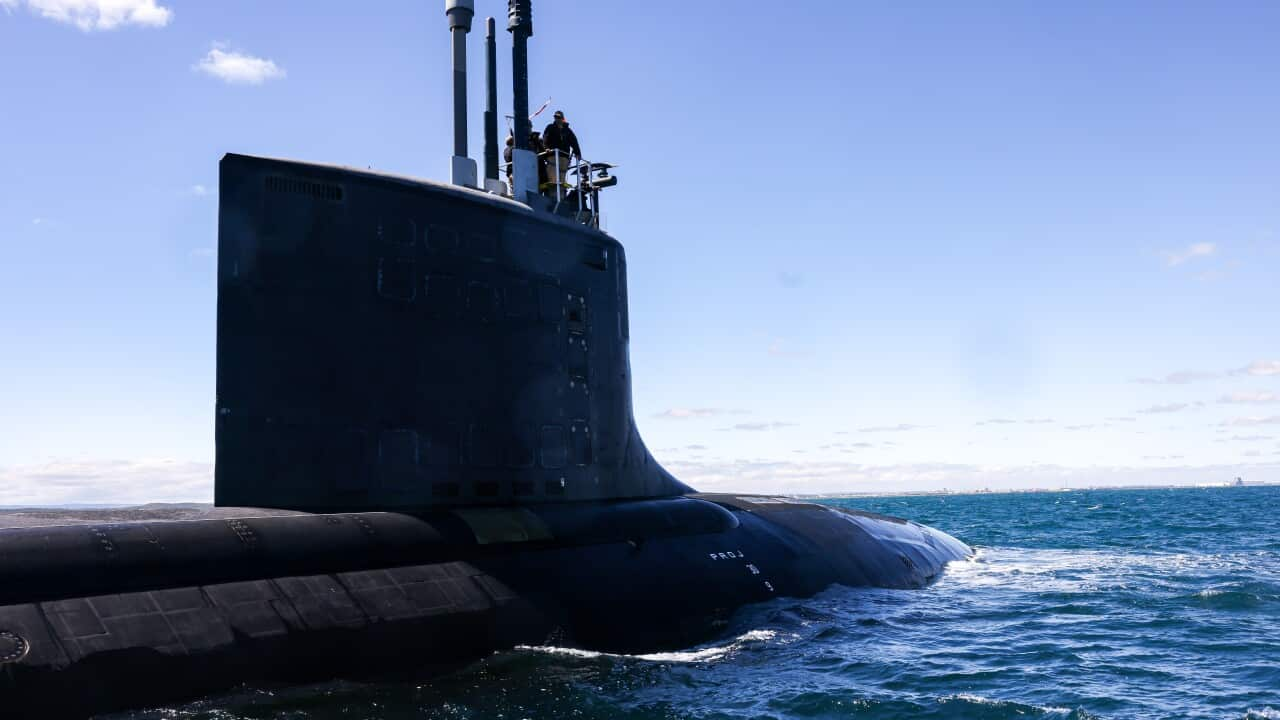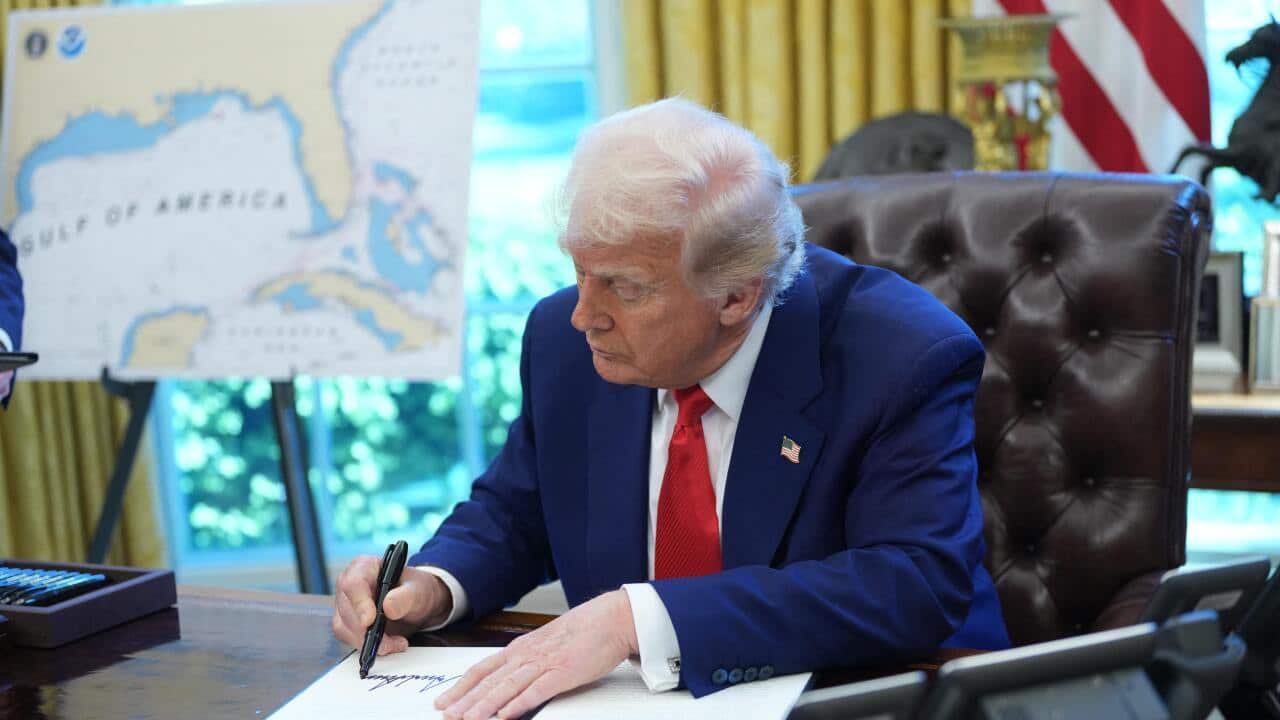Australia's AUKUS deal — estimated to cost between $268 billion and $368 billion — is facing pressure as a United States senator says the country is "having trouble getting these ships and subs on time, on budget".
The US and the United Kingdom have both launched reviews into the multi-billion-dollar submarine dea
l amid production concerns and steel tariffs.Under AUKUS, Australia is set to acquire three nuclear-powered Virginia-class submarines from the US in the early 2030s, before a new fleet of boats is built for delivery from the 2040s.
The deal lasts until 2075, and countries can cancel the contract with one year's notice.
Steel tariffs could create problems
US senator Tim Kaine, the most senior Democrat on a Senate subcommittee on seapower, reportedly told an AUKUS dinner on Wednesday night (local time) submarine construction is facing time and budget setbacks.
He said about a third of the steel and aluminium that went into ships and submarines came from the Canada and the United Kingdom, which like Australia, now.
"Increase those prices and there’s going to be a problem. So the first concern that I have about the tariff regime is it’s a national sales tax that is really going to blitz us," Kaine said at the dinner in Washington, which was hosted by former Australian defence minister–turned–lobbyist Christopher Pyne, according to Nine Newspapers.
David Andrews, senior manager for policy and engagement at the Australian National University's National Security College, said AUKUS would likely become costlier, but it would be hard for the federal government to do much about it.
"There is no Plan B for AUKUS there, isn’t a ready-made replacement or off-the-shelf option," he told SBS News.
"A lot of these external factors, like tariffs, are not within the control of the Australian government to shape."
Will it increase costs?
Andrews said the minimum budgeted cost of $268 billion for the deal would likely rise, but that defence projects have built-in contingencies.
"An increase of steel tariffs would be a huge concern for any project. But there are measures and contingencies in place to allow for that," he said.
"In this case there is 50 per cent contingency built into the estimated costs, to cover changes in material costs or delays."
While the minimum spend could increase, Andrews said the maximum quote of $368 billion could remain the same.
He said defence projects typically have a contingency of at least 10 per cent included in budgeting.
Andrews said steel tariffs shouldn’t impact the cost of the three Virginia-class submarines the US will send to Australia next decade, as they are already built.
However, if the production costs of new submarines were to increase, the US could ask for more funding from Australia.
The US is currently reviewing the deal to scrutinise its cost-effectiveness.
Andrews said the review, being conducted by Elon Musk, y, is part of the procedural process and "makes sense" for expensive government projects.
While it is common place to review funding, the current US administration has made a number of large cuts to government spending.
Could Donald Trump scrap AUKUS?
If Trump chooses to withdraw from the deal, then AUKUS would be scrapped, which an international relations expert said could happen if the US president decides it compromises US "national security or deterrence needs".
"The US is already facing challenges in meeting its own production targets for nuclear submarines, raising concerns about its ability to deliver on AUKUS commitments," Dr Minran Liu, from the University of Queensland's school of political science and international studies, told SBS News.
"AUKUS is inherently a bet on the future of the US. One that carries serious risks for Australia, including uncertainty over submarine construction, doubts about America's long-term commitment to the Indo-Pacific, and unpredictability in US domestic politics."
Liu said Australia has little say or control over US domestic policies, meaning the future of AUKUS is in Trump's hands.
Andrews acknowledged that Trump has been "unpredictable" in his dealings with other nations but said his cabinet strongly supports AUKUS.
"The key figures in his government, his secretary of state, the secretary of defence, and the national security advisor have all expressed their support for AUKUS," he said.
"They see value in it, they see a strategic logic that makes sense."
Albanese 'confident' AUKUS will go ahead
Prime Minister Anthony Albanese spoke to reporters on Friday about AUKUS, and said that despite the steel tariffs, he was confident the deal would continue under Trump.
"I’m confident about AUKUS because I’ve had those first-hand discussions with the president of the United States, and also with more than 100 members of congress, in the senate during my state visit to the United States," he said.
Opposition leader Peter Dutton was defence minister when the AUKUS deal was signed between Australia's Coalition government and the Democratic administration in Washington DC.
He told reporters on Friday that "President Biden didn't want the deal" at the time.
"The Americans hadn't shared their nuclear secrets since the 1950s, and it was a significant outcome, and we had worked on that."
Dutton said it demonstrated his party's ability to deal with "whatever comes our way after the election."




